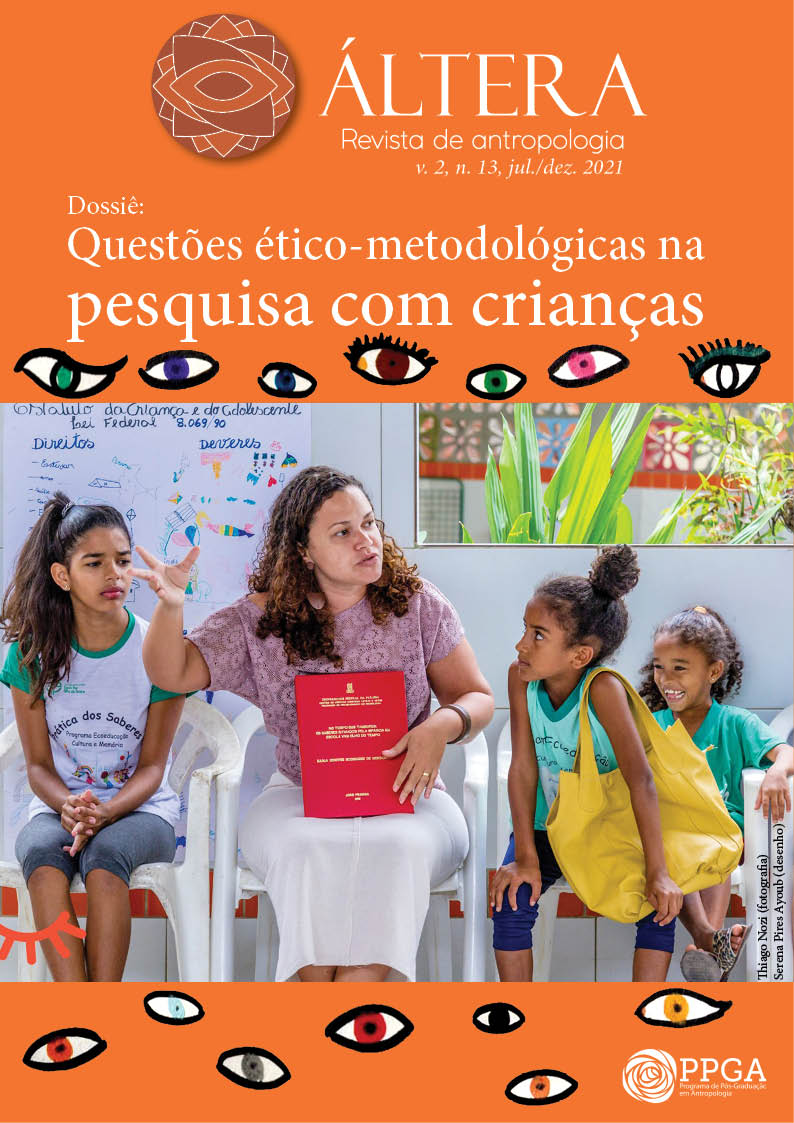Investigating children in social movements in Latin America
(or what we learned from them in our research)
DOI:
https://doi.org/10.22478/ufpb.2447-9837.2021.n13.60019Abstract
This paper aims to reflect on the ethical-methodological challenges in research with children in social movements in the struggle for housing and land rights. This effort is the result of two doctoral investigations in the field of childhood studies with the following subjects: children from an urban occupation in Belo Horizonte (MG); and children from a camp of the Movement of Landless Workers (MST) in the countryside of the state of Sao Paulo. We begin presenting some elements that bring both investigations together when entering the field, placing them within the scope of research with children in non-institutionalized contexts in Latin America. Then, we present the different methodological paths followed, given the dynamics of the social movements investigated and the relations established between researchers and subjects. Finally, we point out some issues for a critical perspective on contemporary childhood studies.
Downloads
Downloads
Published
Issue
Section
License
- Autores mantém os direitos autorais e concedem à revista o direito de primeira publicação, com o trabalho simultaneamente licenciado sob a Licença Creative Commons Attribution que permite o compartilhamento do trabalho com reconhecimento da autoria e publicação inicial nesta revista.
- Autores têm autorização para assumir contratos adicionais separadamente, para distribuição não-exclusiva da versão do trabalho publicada nesta revista (ex.: publicar em repositório institucional ou como capítulo de livro), com reconhecimento de autoria e publicação inicial nesta revista.
- Autores têm permissão e são estimulados a publicar e distribuir seu trabalho online (ex.: em repositórios institucionais ou na sua página pessoal) a qualquer ponto antes ou durante o processo editorial, já que isso pode gerar alterações produtivas, bem como aumentar o impacto e a citação do trabalho publicado (Veja O Efeito do Acesso Livre).



